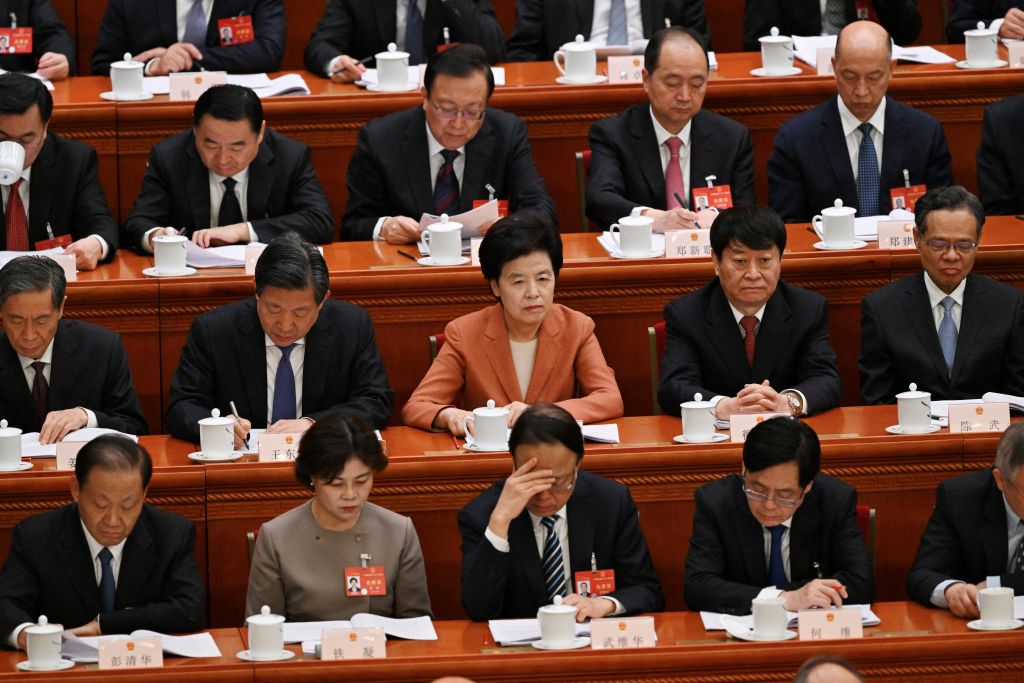cross-posted from: https://feddit.org/post/1733210
The authoritarian China model under President Xi Jinping’s leadership is facing increasing failure.
“Its most critical flaw lies in the unconstrained power of the ruling Chinese Communist Party (CCP), arbitrarily intervening in market and social activities for the interest of itself or its leaders without robust mechanisms for accountability and self-correction,” writes Chris Lee, a Chinese economist and political strategist.
The China model, in effect, is an institutional system that combines extensive state control and ownership of resources with limited free-market activity, all led by the authoritarian CCP.
[…]
The China model, in effect, is an institutional system that combines extensive state control and ownership of resources with limited free-market activity, all led by the authoritarian CCP.
[…]
Internationally, the China model is more combative, aggressive and expansionist than before. The CCP aims to reshape the world order. It presses on with the Belt and Road Initiative for involvement in foreign economies, establishes its own multilateral organisations and gets involved in geopolitical issues.
[…]
And yet, despite the CCP’s belief in the China model, the Chinese market is losing its dynamism.
The combined market value of private companies, which peaked at US$4.745 trillion in 2021, had fallen below US$2 trillion by the end of 2023.
Foreign direct investment was a mere US$33 billion in 2023, less than 10 percent of the $344 billion reached in 2021 and the lowest level since 1993.
Due to the decline in domestic consumption and investment, the youth unemployment rate has exceeded a critical 15 percent since 2022, and the International Monetary Fund forecasts China’s annual GDP growth will be just 4.6 percent in 2024 and fall to around 3.5 percent by 2028.
The West’s efforts to de-risk their economies, reducing exposure to China in manufacturing and strategic technologies, are exacerbating China’s prospects. China’s rise is losing momentum.
[…]
To restore confidence in the future of China, Xi needs to reduce government intervention in the market and create a level playing field in which SOEs [state-owned enterprises] and private businesses can compete and foreign capital can flow.
The CCP needs to apply the rule of law and relax repression on civil society, thereby freeing the creativity and dynamism of the people. It should abandon ideological antagonism towards Western democracies and re-engage with the outside world. These actions will not undermine the CCP’s legitimacy to govern, which is Xi’s biggest concern. On the contrary, they will strengthen the foundation of its rule, which has been economic success.



The PRC intentionally deflated private companies that it felt needed deflation (e.g. construction sector) so it’s probably unsurprising that the private sector decreased in size.
China doesn’t need continual FDI. They need FDI to speedrun manufacturing and technology development instead of having to do all the R&D needed to get it. This implies that the need for FDI will decrease over time as China learns how to build the things it previously couldn’t. The PRC does not seem interested in making money for foreign investors other than when they want to get their know-how.
The PRC didn’t “intentionally deflate” private companies, not in the construction sector nor in any sector.
The property crisis in China may have a few reason, but one of them clearly is the failure of a centrally-planned economy. The state was putting in ever more money in a market without demand. The result are ‘ghost towns’ and unfinished buildings that are often in such a poor state that they must be demolished. Problem is that many ordinary Chinese people already poured their savings into property that never get build. (One detail here: such pre-payments in China typically run much higher than in the Europe and the U.S. as a share of the purchase price. It’s not very funny for the people effected.)
China doesn’t ‘intentionally deflate’ private companies but will be forced to direct more state-owned money to solve the issue as private foreign creditors aren’t an option. They won’t return to a Chinese property bond market where they’ve lost already more than USD 10 billion. And there is a risk that a lot of those private companies which have already been engaged for some time will again lose money. In the future, however, China would need more private businesses. More market, less state. A country that is more open to the world. Such a policy would support Chinese people in the long run. It’s just that most observers aren’t too optimistic that this will happen anytime soon.